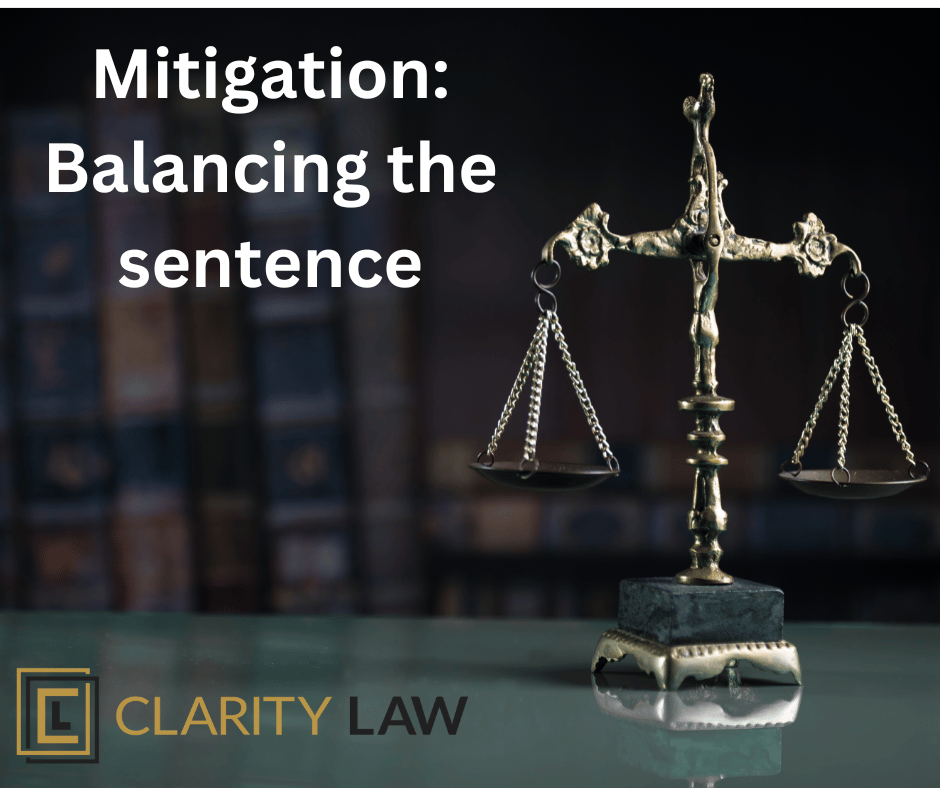
If you have been charged with a criminal offence in Queensland, you may be wondering what factors can affect the sentence that you may receive if you are found guilty or plead guilty. One of the most important factors that can influence the outcome of your case is the presence of any mitigating factors.
What are mitigating factors?
Mitigating factors are facts or details about the offender and their offence that tend to reduce the severity of their sentence. They can include things like:
- an early guilty plea
- no criminal history
- significant physical or mental health issues or low intellectual capacity
- rehabilitation efforts after the offence but before the sentence
The law in Queensland (section 9 of the Penalties and Sentences Act) states that the court must have regards to mitigating factors when setting the penalty.
How do mitigating factors work in practice?
The court has a wide discretion to decide what weight to give to each mitigating factor in each case. The court will also consider other factors, such as:
- the maximum penalty prescribed for that offence
- the nature and seriousness of the harm done
- the previous convictions of the offender
- the offender's age, character and intellectual capacity
- the prevalence of the offence
- any other relevant circumstances
Some mitigating factors may have more impact than others, depending on the type and seriousness of the offence. For example, an early guilty plea will result in a significant reduction of the sentence, as it shows remorse, acceptance of responsibility and saves time and resources for the court and the prosecution . However, a lack of criminal history may not be very relevant for a very serious offence, such as murder or rape.
Some mitigating factors may also interact with each other or with aggravating factors, which are facts or details that tend to increase the seriousness of the offence and the sentence. For example, if an offender has a mental health issue that contributed to their offending, but also shows a lack of remorse or has a history of similar offences, the court may balance these factors and decide how much leniency to grant.
It is always a balancing act for the judge or magistrate to work our how much weight should be given to mitigating factors. There is no mathematical approach when balancing all the factors. In R v Roberson the court said;
The authorities do not condone, in any respect of sentencing, some arithmetical approach under which a deduction is made from a pre-determined range of sentences: the sentencing judge is obliged ‘to take account of all of the relevant factors and to arrive at a single result which takes due account of them all.
What are some examples of mitigating factors?
Here are some common examples of mitigating factors that may apply in different cases in Queensland:
- Early guilty plea: As mentioned above, this is one of the most significant mitigating factors, as it can result in a discount of up to 33% on the sentence . It also demonstrates remorse and cooperation with the justice system as well as an acceptance of responsibility for the offence
- No criminal history: This can show that the offender is of good character and that their offending was out of character or an isolated incident. It can also indicate a low risk of reoffending
- Significant physical or mental health issues or low intellectual capacity: These factors can affect the offender's culpability, meaning their level of blame or responsibility for their actions. They can also affect their ability to cope with imprisonment or other forms of punishment. The court may consider medical reports or expert evidence to assess these factors . If these factors are so strong the whole charge may need to be dropped
- Rehabilitation efforts after the offence: These can include things like attending counselling, completing courses, seeking treatment, paying compensation or apologising to the victim. They can show that the offender is genuinely remorseful and willing to address their underlying issues or problems that led to their offending
- Co-operation with Authorities. For example a person may voluntarily admit to police they have committed a crime or may show significant co-operation in other ways.
- Providing the court with character references
How can I present mitigating factors to the court?
If you have been charged with a criminal offence and you have any mitigating factors that you want the court to consider, you should seek legal advice from an experienced criminal lawyer as soon as possible. A lawyer can help you gather evidence and prepare submissions to present your case in the best possible light. They can also advise you on your options and prospects of success.





